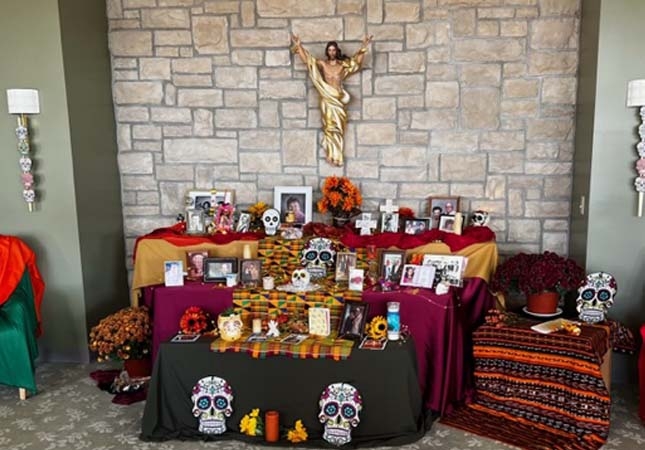
This year, the Office of Multicultural Ministry invited all chancery employees to contribute to an ofrenda, which was set up in the foyer of the diocesan Center for Ministry for All Souls Day. An ofrenda is a special devotional altar to remember, offer respect and pray for deceased loved ones. This custom has its roots in the ancient practice of commemorating the deceased members of monastic communities.
In the Americas, the practice of creating an ofrenda is also connected with Mexico’s Día de los Muertos, which is its own distinct cultural day -- meant to embrace death as part of the cycle of life and as something that need not be feared. Death is accepted like any other stage in life. The famous skull-faced paintings which are part of Mexico’s “Day of the Dead” tell us that there is perhaps comfort in an acceptance of our mortality, and that the dead should be commemorated, not feared. The skulls and skeletons have nothing to do with Halloween.
Día de los Muertos is now often celebrated in conjunction with the Catholic Church’s Commemoration of All the Faithful Departed (All Souls), which takes place each November 2. This is a special time to show our love for the deceased by praying for them and hastening their journey to heaven if their souls are still being purified of venial sins in purgatory. Some Catholics celebrate All Souls Day by having family meals at the graves of loved ones and decorating altars of prayer in their homes with pictures of deceased family members. The Church offers Masses for the faithful departed throughout the year, not only on November 2. The entire month of November is dedicated to praying for the deceased, imploring God that through his mercy, their souls may rejoice forever in his loving presence.
To learn more about the Office of Multicultural Ministry visit: https://saginaw.org/multicultural-ministries